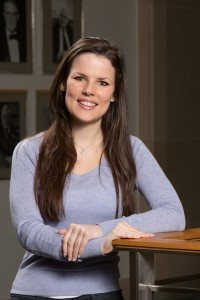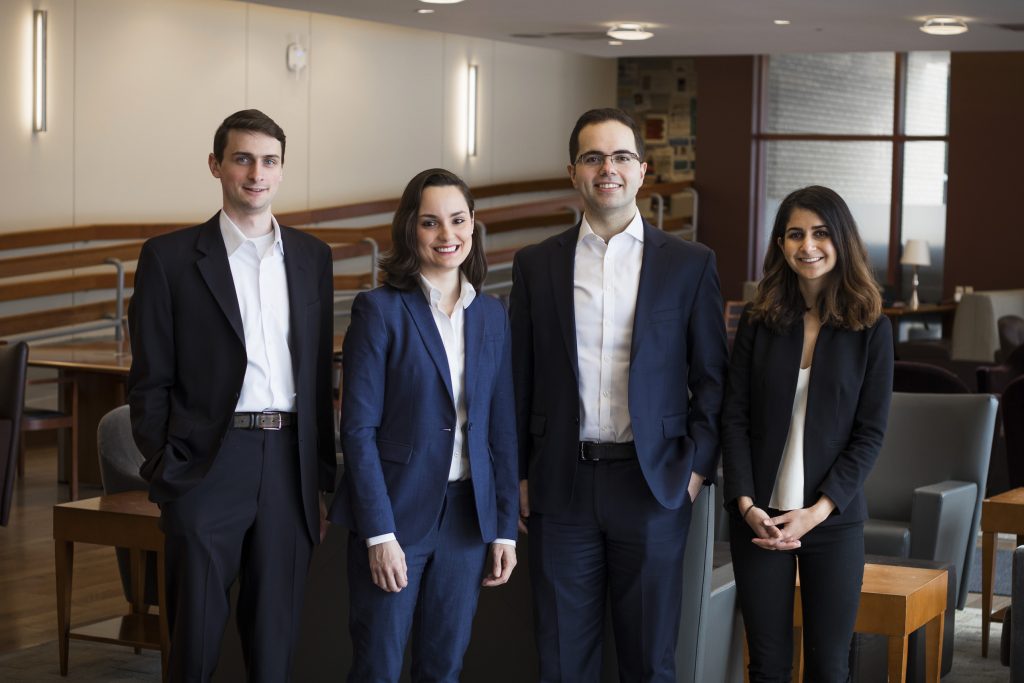During her LL.M. year at HLS, Kati greatly valued her work with the Harvard Immigration and Refugee Rights Clinic. Her winter term independent clinical with the Refugee Rights Clinic at Tel Aviv University brought her to Israel at a critical time: Kati explained that Israel has only recently become a country of destination for refugees, and the country is in the process of developing its laws, policies and indeed its positions on refugee rights. More urgently, her first client, a HIV-positive  South Sudanese man with three young children, was facing immediate deportation. The Clinic’s efforts were successful, resulting in a temporary residence permit for the family on humanitarian grounds. “The strategy for an eight-month case is very different from what happens when someone is facing a two-week order,” Kati said. “It was great that I could make a contribution in two weeks.” Her work in Israel involved both direct client service (drafting affidavits, researching country conditions and precedents, and preparing clients for hearings) and policy research (helping with a position paper that advocates for the development of a Convention Against Torture procedure in Israel). Kati recognized the challenges of translating classroom and clinical work into the field: “I had to learn to walk a very fine line respecting religious, cultural and political sensitivities to be able to help our clients,” she remembered. Still, her winter term in Tel Aviv has “greatly reaffirmed [her] commitment” to working with refugees after graduation: “That’s why I came to Harvard, and that’s why I’m a lawyer.”
South Sudanese man with three young children, was facing immediate deportation. The Clinic’s efforts were successful, resulting in a temporary residence permit for the family on humanitarian grounds. “The strategy for an eight-month case is very different from what happens when someone is facing a two-week order,” Kati said. “It was great that I could make a contribution in two weeks.” Her work in Israel involved both direct client service (drafting affidavits, researching country conditions and precedents, and preparing clients for hearings) and policy research (helping with a position paper that advocates for the development of a Convention Against Torture procedure in Israel). Kati recognized the challenges of translating classroom and clinical work into the field: “I had to learn to walk a very fine line respecting religious, cultural and political sensitivities to be able to help our clients,” she remembered. Still, her winter term in Tel Aviv has “greatly reaffirmed [her] commitment” to working with refugees after graduation: “That’s why I came to Harvard, and that’s why I’m a lawyer.”
(Please visit “Winter Term 2013: Snapshots from Students” to read about other recent projects.)
 Since the Cravath International Fellowships were launched in 2007, more than 170 students have traveled to 69 countries during Winter Term as Cravath Fellows, pursuing clinical placements or independent research with an international, transnational, or comparative law focus. In 2018, ten Cravath Fellows traveled to nine countries; four of the students (left to right: James Toomey ’19, Alexis Wansac ’19, Filippo Raso ’18 and Niku Jafarnia ’19) recently shared their stories with Harvard Law Today.
Since the Cravath International Fellowships were launched in 2007, more than 170 students have traveled to 69 countries during Winter Term as Cravath Fellows, pursuing clinical placements or independent research with an international, transnational, or comparative law focus. In 2018, ten Cravath Fellows traveled to nine countries; four of the students (left to right: James Toomey ’19, Alexis Wansac ’19, Filippo Raso ’18 and Niku Jafarnia ’19) recently shared their stories with Harvard Law Today.


